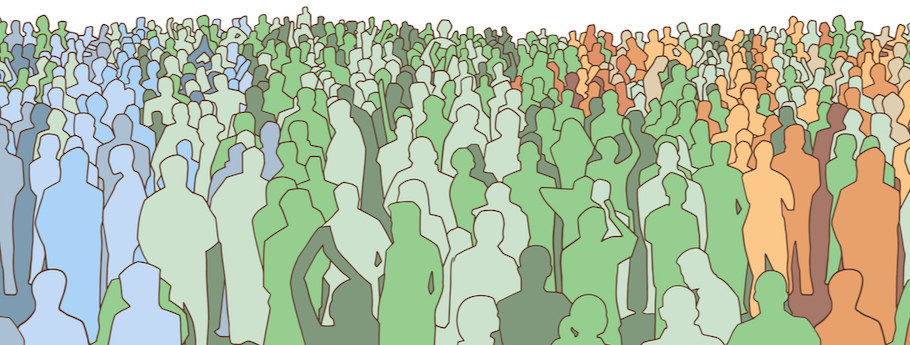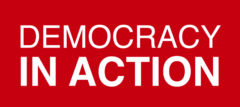
‘Populism’ is a frequently used term in politics, often deployed at the expense of people, attitudes and actions with which we disagree. Such indiscriminate labelling is the result of populism being interpreted in vastly different ways by different people. Conflicting opinions exist not only about who is a populist, but whether populism itself is a good or bad thing for democracy. The question is as relevant as ever: think about the deadly consequences of Putin’s rule in Russia such as the war in Ukraine, or the recent investigations about the US Capitol Hill riots in January 2021 and the role former US president, and quintessential populist, Donald Trump might have played in the events.
Interpreting populism
It is worth remembering that the context amid which the term populism first appeared was significantly different from today. The American Populist Party, or People’s Party, emerged in the late nineteenth century as a left-leaning agrarian movement advocating economic and political reforms for the benefit of the peasant population, especially in the western United States.
A positive (and in my view romantic) interpretation of populism as a radical emancipatory response to weak, inconsistent and unjust liberal democracy has also been developed by political scientists Ernesto Laclau and Chantal Mouffe. Their views have resonated with a section of the European left, who have advocated left-wing populism as a response to the rise of neoliberalism and right-wing extremism in the European political space.
Perhaps the most common but least accurate interpretation portrays populism as a simplistic policy that sets out to please everyone regardless of the cost. While it is entirely possible for someone who sees politics as little more than an ego trip to be a populist, that person does not become a populist simply because they try hard to please everyone – this is not populism; it is at best popularism. But it is also true to say that those willing to cater to, or tolerate, any pathological sentiment in society for the sake of political popularity are allies of those who seek to undermine the values of liberal democracy.
Populism and political power
It is the latter who German-American political scientist Jan-Werner Müller describes as populists. According to his definition, a populist is someone who arbitrarily claims the exclusive right to represent the people. Populism is explained in similar terms by Dutch political scientist Cas Mudde, who says that populism in all its forms – whether from the left or right – includes references to ‘the people’ and the stigmatisation of elites. Mudde therefore argues that populism is not an ideology, but a political strategy used by strong, charismatic leaders to seize and consolidate political power.
In his book The People vs. Democracy, Yascha Mounk describes illiberal democracy as a form of populism in power, or democracy without rights. In such a democracy, elections are held regularly but without any effective safeguards to ensure they are free and fair. There is no respect for political freedoms or social minorities’ right to equality. The media and judiciary are unable to exercise their oversight functions. Eventually, the power of the people is replaced by the will of the majority, as interpreted, implemented and personified by the people’s leader – in other words, the populist.
So, populism is not to be recognised by the labels that political opponents fling at each other, but by the attitude shown towards the institutions providing democratic oversight. In a liberal democracy, these institutions play a key role in ensuring respect for pluralism, political freedoms, human rights and the rule of law. In the paradigm of populist ‘people’s power’, however, they are conceived as an obstacle to the will of the people.
Controlling the judiciary
How is this reflected in practice? Let’s start with the judiciary. The judicial branch of government is the one that most often and effectively prevents populists from arbitrarily, illegally and unconstitutionally exercising the ‘people’s will’ or protecting ‘national interests’. Populists tackles this obstacle by taking control of the judiciary, including appointing judges willing to cooperate with, cover up and legitimise populist acts that may be questionable in terms of applicable law and constitutional order.
It is well known how important judicial appointments to the US Supreme Court were to former US President Donald Trump. Over the course of his four-year term, circumstances – as well as the machinations of the Republican majority in Congress – allowed Trump to appoint three Supreme Court justices: Neil Gorsuch, Brett Kavanaugh and Amy Coney Barett. One devastating consequence of these appointments is the recent Supreme Court decision that reverses Roe v. Wade and ends American women’s constitutional right to abortion.
On top of this, Trump appointed more than 250 judges to lower federal courts. While judicial appointments are of course necessary for the functioning of the judiciary, it is striking that Trump appointed as many judges in four years as most of his predecessors managed in eight. Populists are often in a hurry to take control of the judiciary. In countries with a shorter democratic tradition and weaker control mechanisms, it is not unusual for the takeover of justice to be sped up through selective purges, orchestrated disciplinary procedures and similar tricks.
In addition, populists undermine the judges and prosecutors they fail to control by subjecting them to vicious attacks, slander and stigmatisation. Calling such justices ‘traitors to the nation’ is a typical example from the repertoire of populist discourse.
Controlling the media
A similar situation applies to the media. Because illiberal democracy is not (yet) a completely authoritarian system, it is forced to coexist with media that may be critical of its policies. This challenge is also addressed through attempts to gain control. In the private media this is done mainly through financial takeovers, and in the public media through replacing people in supervisory and administrative bodies, or other forms of pressure.
In the eyes of a populist, a public medium that is independent, and as such potentially critical of those in power, is unacceptable. The notion of the public interest is replaced by the interests of the state – which, of course, belongs to the populist. As in the case of the judiciary, any media outlets the populist fails to take over or co-opt are subjected to insults. ‘Mainstream media’ and ‘fake news media’ are typical of the labels that Trump, among others, uses to tackle critical reporting.
The discrediting of facts has a similar effect. Trump adviser Kellyanne Conway used the term ‘alternative facts’ to defend the President’s eye-watering lies about the number of people at his inauguration. In a world where everyone has the right to their own ‘facts’, the truth no longer exists. Instead, the media is judged solely on the degree of loyalty shown to the leader and their ideology.
Controlling civil society
The third key component of a healthy democracy is civil society, something populists are particularly keen to obstruct, control and, ultimately, suppress. Trump’s (lack of) regard for civil society and civil rights was tellingly reflected in his facial expression after he ordered police to violently disperse a crowd protesting racism in front of the White House so that he could walk to St. John’s Church and have his picture taken while holding a bible.
Articles 11 and 12 of the European Convention on Human Rights guarantee the proper functioning of civil society in Europe. Article 11 secures the right of association, and Article 12 the right to peaceful protest. These two fundamental political freedoms are under great pressure in countries where populists are in power. In a system where the popular will can only be represented by the populist leader, all other expressions of citizens’ will – especially if critical of the authorities – become unacceptable by default. The formulation of ‘foreign agent’ has been enacted in some countries to make it easier to restrict political freedoms protected by the European Convention.
The populist’s dilemma
The challenge faced by populists is that even a successful takeover of society’s key political institutions does not insulate them against popular discontent in the long run, including among those who enthusiastically supported them in the past. A populist manipulates people’s frustrations, which are often provoked by genuine grievances, to delegitimise political competition. Once in power, however, they have neither the interest nor the competence to solve the injustices they promised to address to gain office.
Without an independent judiciary, free media and functioning civil society, there is no effective protection against the incompetence and corruption of the authorities. When positions of authority and influence are allocated based solely on loyalty to the ruler, society becomes incapable of successfully tackling economic, social, environmental, technological, developmental, health and other challenges.
Also, diverting attention to supposed cultural struggles, inciting intolerance and fear, and stigmatising social minorities are not a sufficiently effective sedative once people realise they have been fooled by a power-hungry trickster. When this happens, as it always eventually does, the only solution left to the populist is violence and repression, at which point the already thin line between illiberal democracy and full-blooded authoritarianism is erased.
Matjaž Gruden is the Director of Democratic Participation at the Council of Europe. He has a law degree from Ljubljana University, Slovenia, and did his postgraduate studies in EU law at the College of Europe in Bruges, Belgium. He contributes regularly to Slovenian media on issues related to Europe, international affairs, democracy and human rights. In 2018, he published the book “Žive naj vsi narodi” (Long live all nations).
The views expressed in this article are those of the author and do not necessarily reflect Democracy In Action’s editorial stance, or the position of any institution or association.
